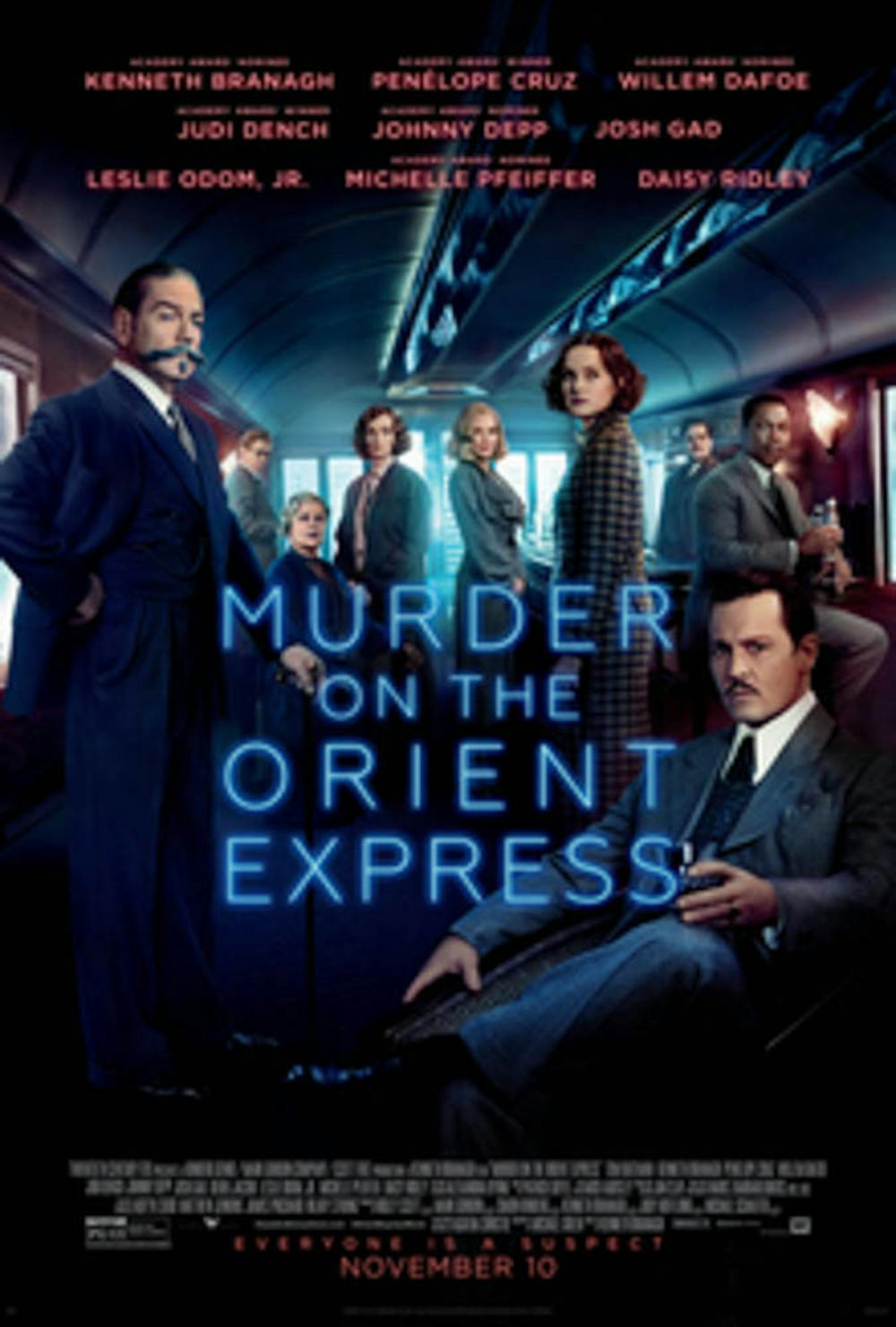Deceptive simplicity defines most Agatha Christie novels. At first glance, each of her works has the appearance of a classic “whodunit,” all based on a seemingly standard premise: A victim is found murdered; a list of suspects presents itself; a detective is handed the job of solving the case. Yet, as the plot unravels, apparent innocence almost always belies sin and culpability, and the murderer is inevitably the very person you would least expect it to be. Indeed, Christie’s novels employ a paradoxical melange of straightforwardness and complexity, which scorns the expression “innocent until proven guilty” and favors the idea “guilty until proven innocent.”
Kenneth Branagh’s remake of “Murder on the Orient Express” is the second film adaptation of Christie’s distinguished novel. In terms of plot, Branagh’s adaptation is, for the most part, faithful to the original. World famous detective Hercule Poirot — self-proclaimed as one of the best in the world — finds himself journeying on the Orient Express when one of the passengers on the train is found murdered in their compartment. The train, at this point, is snowbound. There are no visible footprints in the snow and it seems safe to assume that the murderer is one of the remaining passengers on the train. Faced with merely a set of disparate clues and potential suspects, Poirot begins his investigation.
The most impactful aspect of the film is its cinematic quality. The train is lavishly decorated and the opulence of the set design and the period costume is impressive. The film also boasts a splendid cast, which includes Judi Dench, Michelle Pfeiffer and Johnny Depp. But a lot less splendid is their respective screen time. Aside from Branagh — who takes on the role of Poirot — all the other actors and actresses play rather insignificant parts by comparison.
As Christopher Orr, senior editor and principal film critic at The Atlantic, put it bluntly, the film may be “visually sumptuous,” but the cast comprises “performers far too gifted to waste their time like this.”
Another limitation of Branagh’s film is its excess of dramatization. What Christie created as a sophisticated murder mystery has unfortunately been transformed into a sort of action-thriller film, where violence and drama are inserted wherever possible. While it is understandable that a certain amount of dramatization serves to heighten the film’s suspense, excessive violence in this situation trivializes the elegance of Christie’s work.
The most vexing surprise in the film is the revelation of Poirot’s former beloved, a possibly deceased woman named Katherine, who does not make a single appearance in any of Christie’s novels. Although this was an inconsequential deviation from the plot, it was rather disconcerting and completely out of character to see Poirot periodically fawning over a photograph of this mysterious woman.
Despite its cringeworthy moments, the film was aesthetically pleasing and moderately enjoyable to watch. Those unacquainted with Christie’s novel may find the film entertaining and the mystery brilliant. More devoted fans of Christie, however, would likely consider the film an unnecessary remake.





